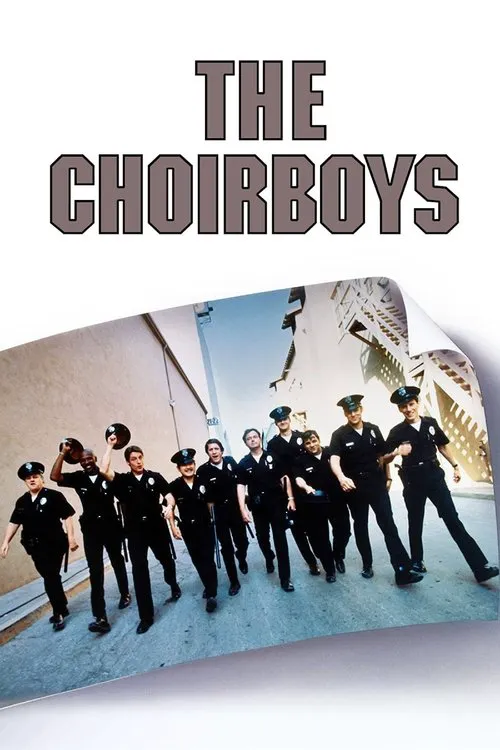The Choirboys

Plot
The Choirboys is a gritty and darkly comedic novel by Joseph Wambaugh, which was later adapted into a film in 1977. The movie follows a group of Los Angeles Police Department (LAPD) officers who have grown disillusioned with the pressures and corruption of their jobs. To cope with the stresses of their profession, they indulge in various forms of after-hours debauchery, creating a camaraderie that serves as both a source of comfort and a facade to hide their deeper issues. The movie revolves around a group of LAPD officers who call themselves the Choirboys, a moniker that refers to the song "The Boys' of the NYPD Choir" - a humorous anthem that they sing while they're off-duty, which is a sarcastic comment on their own troubled lives. The group consists of a diverse range of characters, each with their own unique personalities, quirks, and struggles. At the center of the story is Leo Kriedler, played by Louis Giambalvo, a disillusioned and bitter veteran cop who's struggling to come to terms with his own demons. Leo's a man who's grown increasingly disillusioned with the LAPD and the world around him, feeling that the department has become too bureaucratic and impersonal. He's joined the Choirboys as a way to reconnect with his fellow officers, and to momentarily escape the pressures of his job. The group's dynamic is further amplified by the introduction of Leo's new partner, Billy 'Peso' Ormond, played by James Woods. Peso's a young, ambitious cop who's eager to make a name for himself within the department, but he's also reckless and impulsive, often getting into trouble due to his own arrogance. As Peso gains experience and becomes more embroiled with the Choirboys, he begins to realize the true nature of the world around him - a world that's often corrupt and morally bankrupt. The Choirboys' leader is a figure of authority and guidance within the group, and that's the character of Jack St. James, played by Lewis Smith. Jack's a seasoned cop who's seen it all, and he's become a mentor to the younger members of the group, offering them advice and guidance when they need it most. He's a firm believer in the code of brotherhood that the Choirboys have adopted, but he's also aware that it's a fragile bond, one that can easily snap under the right (or wrong) circumstances. Throughout the movie, the Choirboys' exploits are often juxtaposed with a series of gruesome and disturbing events that highlight the darker aspects of L.A. These scenes are a stark reminder that, beneath the surface, Los Angeles is a city of violence and corruption, where the rule of law is often twisted and distorted. They serve as a counterpoint to the after-hours antics of the Choirboys, who are desperate to escape the brutal realities of their jobs. As the story unfolds, the Choirboys' behavior becomes increasingly erratic and self-destructive. They're a group of men who are addicted to violence, drink, and other forms of destructive behavior, and they're unable to stop themselves from engaging in this self-destructive cycle. It's a tragic fate that awaits many of them, including some who meet untimely deaths or become embroiled in the kind of situations that threaten to destroy their lives forever. Despite its bleak subject matter, The Choirboys remains a thought-provoking and often hilarious movie that provides a scathing critique of the LAPD and the societal ills that plague Los Angeles. The film's dark humor and biting social commentary continue to resonate long after the credits roll, and it's a testament to the enduring power of Joseph Wambaugh's novel.
Reviews
Recommendations




